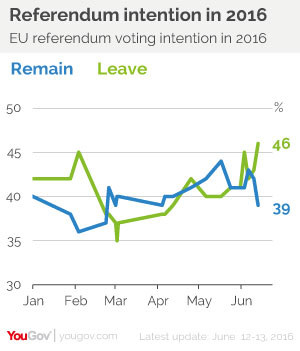
With 10 days to go until the British public decides whether it wants to leave or remain in the European Union, Turkey’s relationship with Europe has become one of the most contentious arguments in the referendum campaign.
Over the past few weeks the Leave camp has aimed to shift the focus of the campaign from the economy to controlling immigration levels. The Leave argument is that Britain can only control immigration if it exits the EU. Turkey has become a proxy to get voters to focus on migration.
Vote Leave has put up posters saying Turkey is joining the EU.
Ads going up - your only chance to vote on whether you want open borders with Turkey is 23 Juneâ¦
Its leaflets carry the same message.
Vote Leave leaflet through the door. Note the phrase "set to". And note the scary depiction of Turkey, Syria, Iraq.
Note how the map above is really keen to emphasise that Turkey borders Syria and Iraq. Vote Leave has asserted that Turkey joining the EU would pose a threat to UK security because crime is far higher, gun ownership widespread, and the government would not be able to stop criminals from coming over. While Nigel Farage has claimed that "the country has turned a complete blind eye to ISIS fighters traveling through its territory".
Some on the Leave side also say an agreement between the EU and Turkey reached earlier this year to handle the flow of asylum-seekers travelling to Greece from Turkey will mean Turks will soon be able to come to the UK visa-free anyway, independent of any EU membership.
Remain says Turkey joining the EU is a red herring because at the current rate of negotiations it won't be happening any time soon:
I told the Parliamentary Liaison Committee: Turkey joining the EU isn't remotely on the cards for decades - despite claims by some.
Mr. Cameron of course ignores the fact that Turkey is due to get visa-free travel to Europe this year. #InOrOut
Meanwhile, granting Turks visa-free travel is indeed central to the EU–Turkey asylum-seekers deal. Without visa-free travel, there would be no agreement, the Turkish government says. But, as Remain and others have pointed out, the visa deal will only apply to the Schengen area countries, so Britain would not be affected, as this map helpfully shows:
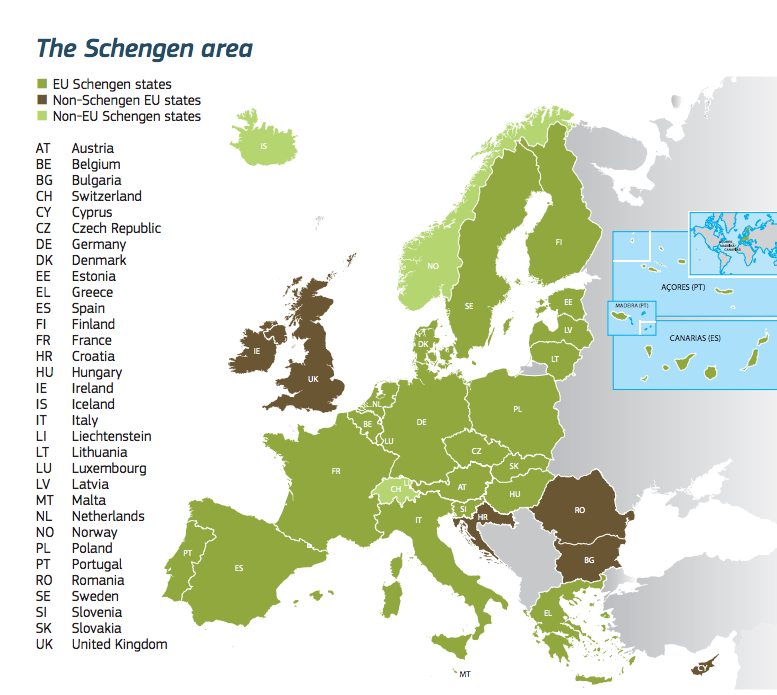
Countries in green affected. Countries in brown not affected. That seems clear.
Over the weekend, however, there was a new twist in the tale.
A story in the Sunday Times alleged that British diplomats had secretly discussed giving 1 million Turks visa-free travel to the UK.
Sunday Times: Leaked UK plan to open door for 1m Turks #tomorrowspaperstoday #bbcpapers
This arrangement would, allegedly, sit alongside the EU–Turkey asylum-seekers deal.
EXCLUSIVE LEAK Diplomats want visa deal with Turkey
Home secretary Theresa May and foreign secretary Philip Hammond – both of whom back Remain – said the Sunday Times allegation was "completely untrue".
FULL DISCLOSURE: May and Hammond flatly deny that leaked memos mean we will let in 1m Turks. Their full statement:
But this has not deterred some from insisting that more than 1 million Turks are set to come to Britain. It's all a plot.
Monday's Daily Mail front page: Fury over plot to let 1.5m Turks into Britain #tomorrowspaperstoday #bbcpapers
So who to believe?
Well, first off, the key fact is that "visa-free travel" does not mean the freedom to move to a country: Freedom of movement and visa-free travel are not the same thing.
Visa-free travel means being able to visit a country, usually on holiday, without having to apply for a visa beforehand.
Brits enjoy visa-free travel to more than 150 countries. Turkey has similar arrangements with 100 nations and territories. There are dozens of countries where people do not need an entry visa to stay in the UK for up to six months. Others, such as citizens of Kuwait, Oman, Qatar, and the United Arab Emirates, can get a visa waiver.
Brazilians and Americans can travel to the UK visa-free, for example, but this does not mean half a billion people are "let in", want to move here, or indeed have all decided to visit Britain on holiday – and all at the same time. Likewise, it would be misleading to ever suggest that 64 million Britons simultaneously head to their visa-free destinations.
Moreover, as anyone who has ever gone on holiday knows, visa-free travel does not mean there are no border controls on arrival.
The problem is that like many other debates in this campaign, much of the discussion around Turkey has taken a flexible approach to facts, generating lots of confusion among voters.
At some points, the debate has got rather lively. David Cameron said his own armed forces minister, Penny Mordaunt, was "absolutely wrong" for claiming the UK would not have a veto on Turkey's potential membership.
David Cameron suggests his own defence minister is lying over #Turkey joining EU https://t.co/k8xTwl26jn Incredible slap-down. #Mordant
But is Turkey actually joining the EU? Would Britain have the power to veto this?
Turkey first applied to join what was then the European Economic Community in 1987. The country has been a candidate for EU membership since 1999. Accession negotiations started in 2005. It is one of five candidates negotiating to join the EU in future.
Successive British governments have been in favour of Turkey joining the EU.
David Cameron has, on several occasions, said this is still government policy. The prime minister has also said that he is supportive of Macedonia and Serbia joining the EU. Indeed, Britain was instrumental in the EU's eastward enlargement.
Even Boris Johnson used to call for Turkey to join the EU.
But several other countries are against Turkey joining the EU.
Unlike the UK, quite a few other countries have historically been opposed to Turkey joining the EU, including Austria, Germany, Cyprus, and Greece. Some countries would most probably hold a referendum, while in others, such as France, the main political parties are divided on the issue.
They, and the UK, all have a veto.
The EU treaties are surprisingly clear on this issue:
The ultimate goal of the negotiations is to prepare an accession treaty. The accession must be approved unanimously by the Council and must receive the consent of the European Parliament. The treaty is then signed and ratified by each of the EU countries and by the acceding country, each according to its own constitutional procedures.
For the avoidance of doubt, that means that every single head of government or state must be in agreement. Self-evidently, therefore, every EU member state has a veto power when it comes to new members joining.
And even before any accession vote takes place, a candidate country must jump through a considerable number of hoops.
To become a member of the EU, a country must adopt a set of rules on various policy areas, ranging from human rights to institutional robustness and environmental policies. Each policy area, and the set of rules and principles associated with it, is called a chapter. There are 35 such chapters. More recent members, such as Croatia, took a decade to complete the process. These accessions were far less controversial, and progressed at a much faster rate. Turkey has successfully completed only one chapter so far and has not even made a start on most chapters.
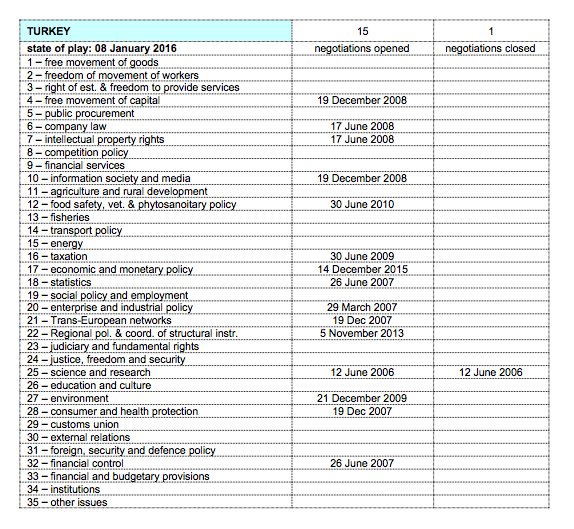
All this considered, on a spectrum that goes from Leave’s “Turkey is joining the EU" to Cameron’s "Turkey won't join the EU for decades", the prime minister's claim is probably closer to the actual state of affairs.
So why does Leave keep bringing up Turkey if the facts are so clear?
It is quite simple. Leave wants the referendum to be about controlling immigration. On this issue it is more trusted than Remain.
Does the statement "will improve the UK’s immigration system" better describe the Remain or the Leave campaign?
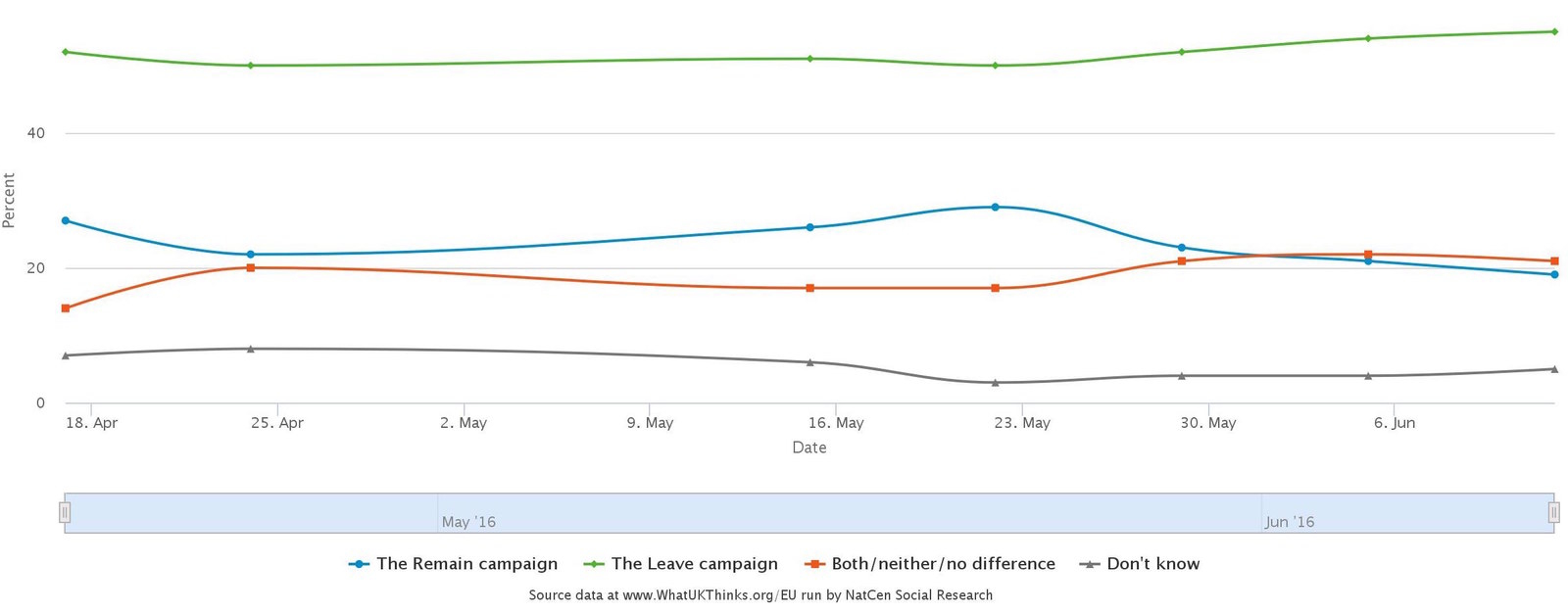
Having promised, and failed, to reduce net migration to the UK to the tens of thousands, Cameron is not very trusted on the issue.
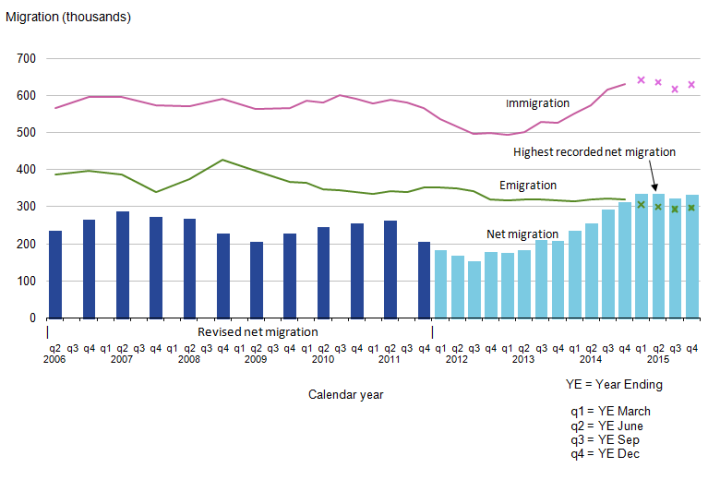
The fact that positive effects of immigration rarely generate similarly bold headlines – and are not debated as passionately – has not helped the prime minister's cause.
As a Leaver, I'm delighted that 18% David Cameron is on #Marr making the case for Remain
And all this takes place against a history of relentless anti-migration headlines and warnings over increased immigration. The British public are strongly opposed to any type of deal with Turkey and believe there are many more migrants in the UK than there are in reality.
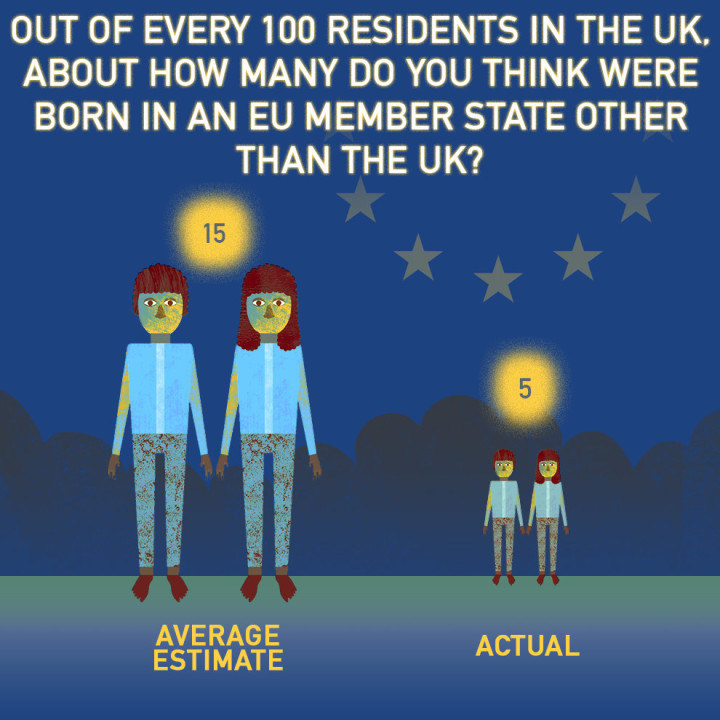
Ultimately, the reason Leave talks so much about Turkey is that the tactic is working.
